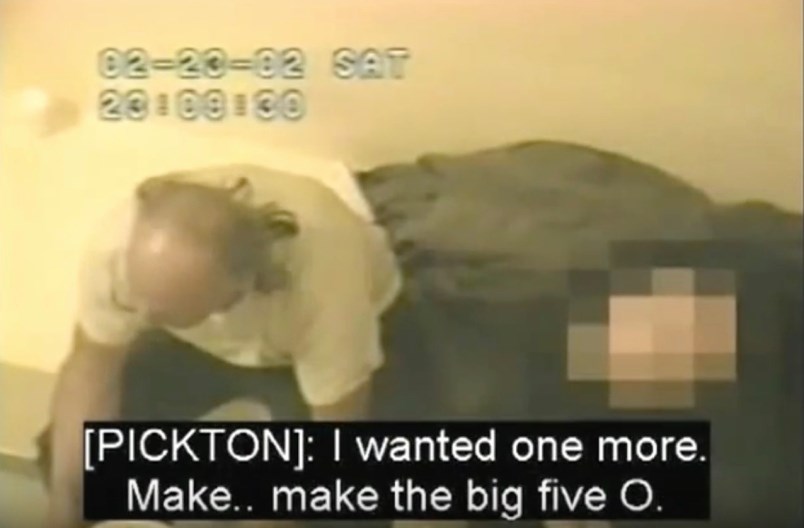A B.C. group wants serial killer William Pickton’s trial evidence preserved as evidence while alleging Prime Minister Justin Trudeau and others committed “crimes of genocide, crimes against humanity, war crimes and aggression.”
Calling themselves the Chilcotin National Congress, the group applied to preserve evidence for future cases.
The application came as part of RCMP applications to dispose of Pickton trial evidence. Up to 200,000 pieces of evidence are currently in storage at “a significant ongoing cost,” Justice James Williams said in his August 13 decision.
Pickton was convicted of second-degree murder in the deaths of six women at his Port Coquitlam pig farm. Twenty other charges were stayed. He told an undercover cell plant he had killed 49 people.
Norman Vincent Traversy and Zsuzsanna Holland applied for intervenor status.
“As I understand the position of the two applicants, they seek to have this court ensure that any evidence related to the Pickton investigation will be preserved for the purpose of the prosecutions they intend to initiate (or have already initiated), as well for the “families of the victims who were murdered at the Pickton pig farm,” Williams said.
They and two others filed affidavits.
“The affidavits are confusing, oblique, rambling and essentially mischievous,” Williams said.
Holland and Traversy have styled themselves as “private prosecutors” in making the claims against Trudeau and others, crimes they allege “occurred on the territory of the State of Tsilhqot'in and/or in Canada and/or in the USA.”
They claim to have requested an investigation by the International Criminal Court (ICC).
Holland provided the court a letter to the ICC Office of the Prosecutor on letterhead of a group called the Chilcotin National Congress. That court has declined to hear a case, Williams said.
Tsilhqot'in National Government vice chair Chief Roger William said the group does not represent the First Nation.
“Neither the Tsilhqot'in Nation nor the Tsilhqot'in National Government are presently pursuing charges of genocide, war crimes or any other offence against Prime Minister Trudeau,” Williams said.
Williams said Holland has also been declared a vexatious litigant.
“In short, the material upon which this application purports to be founded is largely nonsense and quite at odds with any standard of evidentiary acceptability,” Williams said in dismissing the application for intervenor status.
Evidence in Canada’s largest serial killer investigation ran from inhalers to clothes, DNA, body parts, blood-soaked items, vehicles and clothing.
Documents filed in court in New Westminster note evidence such as crime-scene tapes, shoes, hypodermic needles, sex toys, rosary beads, knives, a gun, pieces of ammunition and licence plates, among other things.
Human remains from the case were cremated in 2010, drawing concerns from victims’ families about how the remains were handled.
The application to dispose of the evidence remains before the court. Handling of it has been delayed by the pandemic.
The judge noted there are two civil lawsuits resulting from the Pickton case. One remains active while the other is apparently dormant.
@Jhainswo



